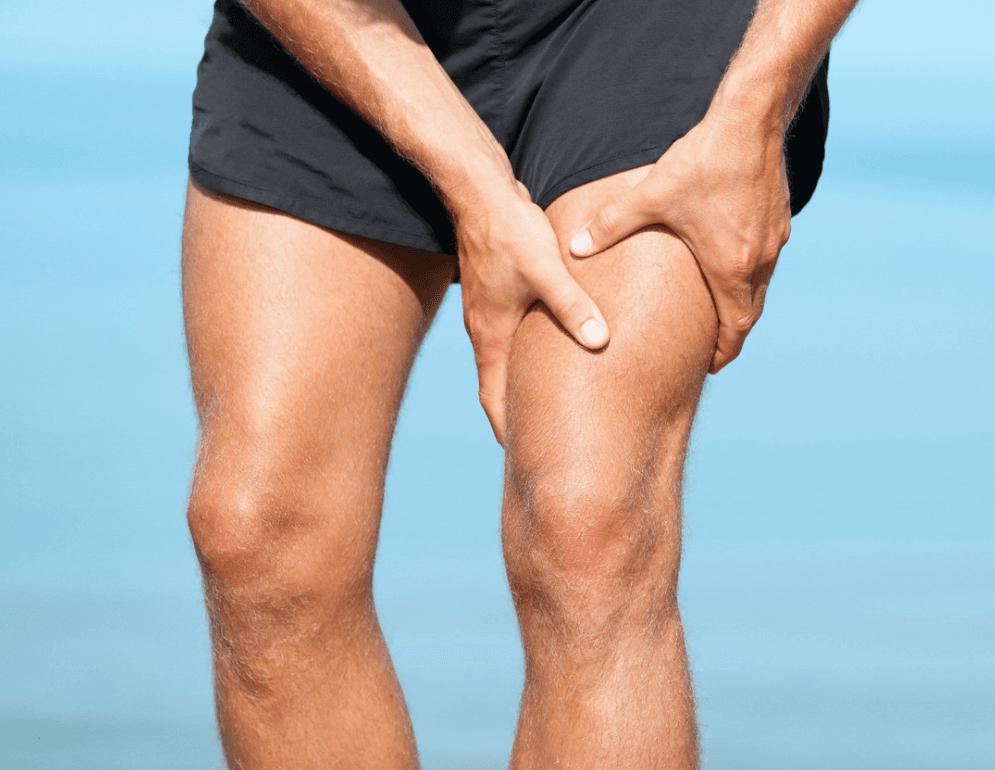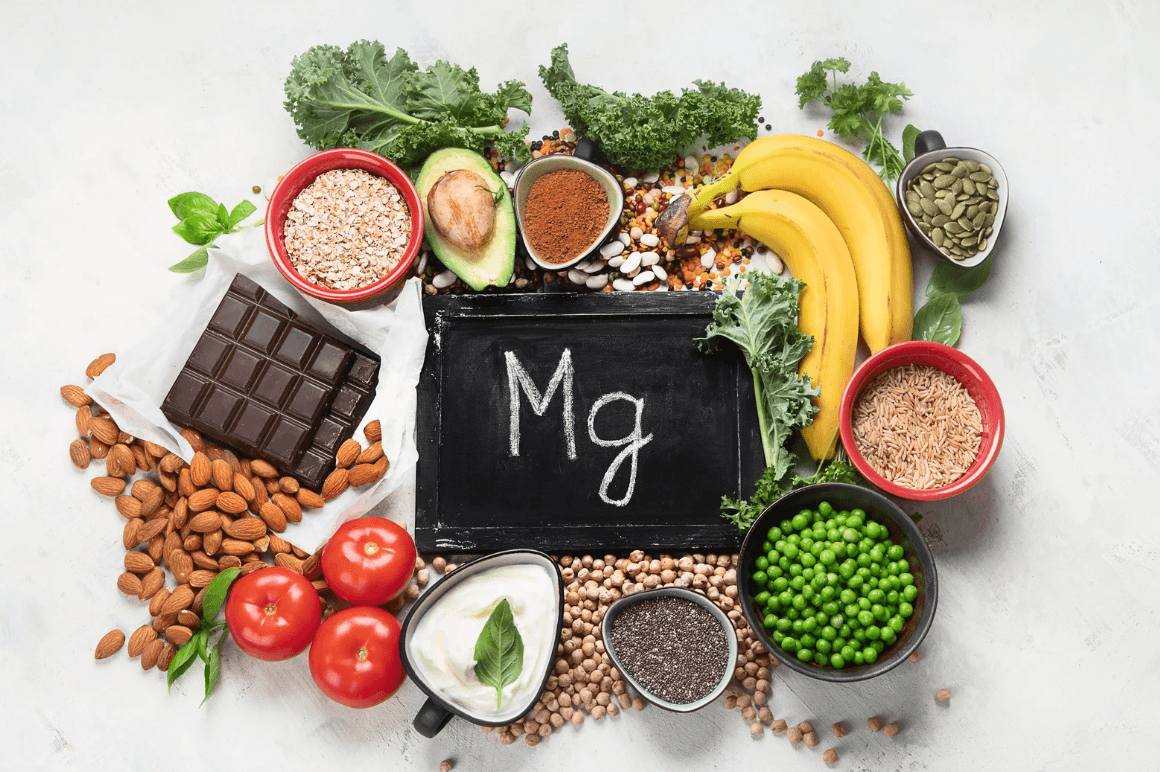Magnesium and Sweating: Can This Mineral Keep You Dry?
Magnesium supports over 300 essential biochemical functions, but can it reduce sweating? Here’s everything you need to know about magnesium and sweating.
Dealing with excessive sweat can feel like a full-time job. Hyperhidrosis can rear its head at the gym, in important work meetings, and on dates. It often requires extra laundry time, more prep for social situations, and hours researching treatment options. One natural treatment option that often comes up is magnesium. And when it comes to magnesium and sweating, we have good and bad news.
The bad news is that there’s limited clinical evidence to suggest a direct relationship between this mineral and hyperhidrosis. The good news is that magnesium may influence some of the most prevalent sweat triggers, meaning it might indirectly reduce sweat. Plus, it’s easy to add more magnesium to your everyday life and this mineral comes with many other health benefits.
The Growing Interest in Natural Remedies for Sweating
Whether excessive sweating is caused by an underlying medical condition or primary hyperhidrosis, it’s an uncomfortable phenomenon—and 100% worthy of a treatment that works. Fortunately, there are many treatment options out there, with efficacy rates ranging from 50-93%, depending on the treatment type.
And one type of treatment that’s currently trending? Natural remedies for excessive sweating. Whether it’s lifestyle changes to minimize sweat triggers or taking a supplement, many people turn to natural solutions for overactive sweat glands.
Magnesium Basics: Essential Functions in the Body
Magnesium has earned its place in any supplement discussion. This mineral exists throughout the human body, though 50-60% of magnesium rests in our bones. Magnesium is beneficial for everyone, and it may be particularly useful in the prevention or management of diabetes, high blood pressure, and cardiovascular diseases.
That said, there is a recommended daily magnesium intake—and excess magnesium doesn’t offer more benefits. The amount you need depends on your age and gender.

Note: Those who are pregnant or breastfeeding may need different amounts than shown in this table.
How Magnesium Supports Overall Health
Over 300 biochemical processes in our body depend on magnesium. And yes, you read that right—300 different processes that keep us healthy require this mineral. For the sake of time, we can’t list all 300, but here are some of the most important processes that magnesium supports:
Cellular energy production
Immune system strength
Cardiovascular health
Bone strength
Blood glucose levels
Muscle and nerve function
Signs of Magnesium Deficiency
Magnesium deficiency is common in certain populations. The most at-risk? Older adults, those with chronic health conditions, and anyone suffering nutritional deficiencies.
Signs someone suffers from low magnesium include:
Muscle cramps
Tingling or numb legs or hands
Headaches
Nausea
Headaches
Constipation
Unsteady heartbeat
Tremors
Weakness throughout the body
When someone suffers a magnesium deficiency, a healthcare professional will often recommend a magnesium supplement. They may also look at their diet and suggest ways to add more magnesium to meals.

The Link Between Magnesium Deficiency and Sweating
Ok, we’ve waxed poetic on magnesium long enough. Can it actually do anything about excessive sweating? Potentially, though the jury is still out.
While not as well studied as the other symptoms of low magnesium, excessive sweating may be caused by a magnesium deficiency. A systematic review on menopause suggests that women who take a magnesium supplement experienced fewer hot flashes and night sweats.
How Deficiency Might Contribute to Excessive Sweating
Right now, the leading theory as to why this essential mineral influences sweat production goes back to those 300 biochemical properties, specifically how magnesium helps regulate body temperature. When our body temperature isn’t regulated properly, we can sweat more.
This theory still has a long way to go until it’s proven. Interestingly, the relationship between low magnesium levels and hyperhidrosis sweat triggers is more established. A 2022 study monitored magnesium levels in people with hyperhidrosis. Those with lower magnesium levels experienced more anxiety and stress, two known triggers for hyperhidrosis.
Even if researchers have yet to establish a direct connection between sweat and magnesium, one thing is clear: Low magnesium may increase the number of sweat triggers someone experiences. Getting the recommended daily amount of magnesium may reduce sweat triggers in your daily life.
Ways to Incorporate Magnesium: Diet, Supplements, and Topicals
Magnesium offers 300 health benefits—and reducing sweat triggers is one. But how exactly can you incorporate this mineral into your daily routine? The three most common options include switching up your diet, trying a magnesium supplement, and looking into topical treatments with magnesium.
Foods Rich in Magnesium
For most people without a chronic illness, it’s possible to get enough magnesium from diet alone. Foods rich in magnesium include:
Green leafy vegetables, like spinach and kale
Nuts
Seeds
Whole grains, like quinoa or brown rice
Avocados
Yogurt
Legumes, including lentils and most beans
Soy products, including milk and tofu
For some meal inspo, you can even check out meals designed to boost your magnesium intake, such as this lentil and potato soup or this magnesium rich salad.

Magnesium Supplements
While many people get enough magnesium from their diet, some of us need an extra boost. Those at-risk of magnesium deficiency or those trying to reduce sweat may consider a magnesium supplement.
Anyone who engages in regular physical activity, especially strenuous activities like training for a marathon or bodybuilding, may need a magnesium supplement too. That’s because we often sweat out magnesium when exercising consistently and at high intensity. To replace that lost magnesium, many athletes turn to fluids that contain electrolytes (another source of magnesium). A more traditional supplement can do the trick too.
Magnesium supplements take the form of a pill, powder, or liquid with electrolytes. You can take it as is or get creative with it. One popular option is the viral TikTok sleepy girl mocktail, which includes tart juice and magnesium powder. While it’s meant to help someone sleep better, it’s also a fun way to get all of magnesium’s health benefits.
Topical Applications: Creams, Sprays, and Oils
Bath salts, creams, sprays, and oils that feature magnesium are some of the most popular topical applications for extra magnesium. But before you go buy a magnesium bath salt, note that there’s less evidence to support topical magnesium’s benefits compared to supplements and magnesium rich foods. Some clinical studies are examining how topical magnesium may be used, but none of those look specifically at hyperhidrosis.
Realistic Expectations: What Magnesium Can and Can’t Do
A magnesium vitamin deficiency is worth solving, but adding more magnesium to your diet isn’t a cure-all. For one, the relationship between magnesium and hyperhidrosis is still being explored. Clinical research has yet to establish a direct connection between the two.
That said, studies suggest magnesium can help regular sweat triggers, mainly anxiety and stress. This is because magnesium reduces physiological markers associated with stress. It can also improve sleep, which allows our brains to recharge and destress.
Understanding the Limitations of Magnesium
Too much of a good thing can be bad, at least when it comes to magnesium. Excessive magnesium can lead to abdominal cramps, nausea, and diarrhea. Watching out for these signs is especially important if you’re taking a magnesium supplement, as some supplements may include higher-than-recommended magnesium dosages.
Speaking of supplements, you also want to purchase them from credible brands. Supplements and vitamins are not FDA regulated, meaning it may be hard to verify the ingredients from certain brands. To find a reputable magnesium supplement, speak with a dermatologist with experience treating hyperhidrosis and ask them for a supplement brand recommendation.
Potential Benefits for Sweat Management
Magnesium may help regulate certain sweat triggers, as well as provide other great health benefits, such as improved sleep, a stronger immune system, and healthy muscle functioning.
Plus, magnesium is typically safe to take alongside other hyperhidrosis treatments, such as medications, prescription antiperspirants, and hyperhidrosis surgeries. Just make sure to check with a qualified health professional before starting any new treatments or supplements. They can provide a more personalized look at if magnesium may interact negatively with any other treatments you take for hyperhidrosis and other medical conditions.
So, Does Magnesium Really Help Manage Sweat?
While magnesium doesn’t make the list of most effective hyperhidrosis treatments, it may help manage sweat. Thanks to its ability to reduce stress and anxiety, magnesium may reduce the number of internal sweat triggers—plus it offers other health benefits.
To learn more about if magnesium is the right sweat treatment for you, check out SweatRx. Our platform connects you with a qualified dermatologist who can walk you through different excessive sweating treatments and help you choose the right one for your symptoms and lifestyle.






